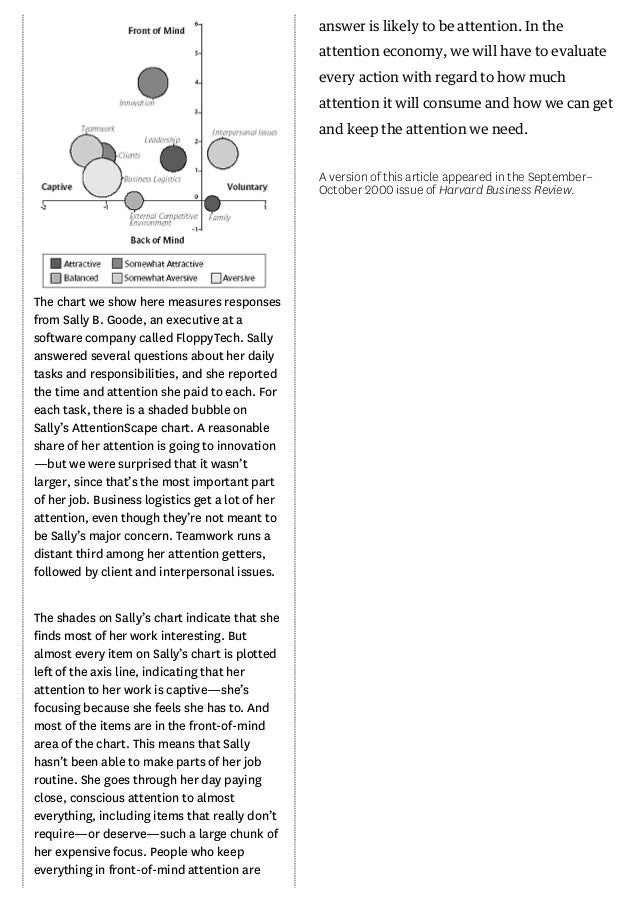Economics Of Attention Pdf Reader
- Posted in:Admin
- 11/03/18
- 58
Attention, has sustained serious blows to its capabilities as core values, along with traditional tools. Economy of Attention and the Limits of Pedagogical Technologies,' in Technology/Pedagogy/Politics: Critical Visions of. In serious, genuinely literate reading, they had no calligraphic power, never made you think about.
If clean air and water were no longer the rule, the economic toll would be enormous. This is easy to grasp, and that is why we have regulations to protect these common resources. We recognize their importance and their fragility. We also recognize that absent robust regulations, air and water will be used by some in ways that make them unusable for others.

A notable feature of many formerly Communist countries is the apparent absence, or impotence, of any notion of a common good. Self-serving party apparatchiks have been replaced by (or become) quasi-free market gangsters.
Many citizens of these countries live in the environmental degradation that results when economic development is left to such interests, with no countervailing force of public-spiritedness. We in the liberal societies of the West find ourselves headed toward a similar condition with regard to the resource of attention, because we do not yet understand it to be a resource. Silence is now offered as a luxury good.
In the business-class lounge at Charles de Gaulle Airport, I heard only the occasional tinkling of a spoon against china. I saw no advertisements on the walls. This silence, more than any other feature, is what makes it feel genuinely luxurious.
When you step inside and the automatic doors whoosh shut behind you, the difference is nearly tactile, like slipping out of haircloth into satin. Your brow unfurrows, your neck muscles relax; after 20 minutes you no longer feel exhausted. Advertisement Outside, in the peon section, is the usual airport cacophony.
Radioinactive Pyramidi Rar Extractor. Because we have allowed our attention to be monetized, if you want yours back you’re going to have to pay for it. As the attentional commons is appropriated, one solution, for those who have the means, is to leave it behind for private clubs like the business-class lounge. Considering that it is those in the business lounge who make the decisions that determine the character of the peon section, we may start to see these things in a political light.
To engage in inventive thinking during those idle hours spent at an airport requires silence. But other people’s minds, over in the peon section, can be treated as a resource — a standing reserve of purchasing power to be steered according to the innovative marketing schemes hatched by those enjoying silence in the business lounge. When some people treat the minds of others as a resource, this is not “creating wealth” — it is a transfer. There are many causes for the increasing concentration of wealth in a shrinking elite, but let us throw one more into the mix: the ever more aggressive appropriations of the attentional commons that we have allowed to take place. I think we need to sharpen the conceptually murky right to privacy by supplementing it with a right not to be addressed.